The Department of Kinesiology and Community Health
College of Applied Health Sciences
Side Navigation
Faculty Research
Faculty, students, and staff in the Department of Kinesiology and Community Health study all aspects of health,
rehabilitation, and human movement across the lifespan. Research Groups and Labs explore many movement-related topics.
Read about kinesiolgy and community health research.
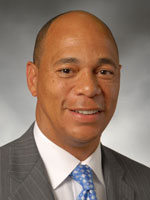
Reginald Alston
Professor, Kinesiology and Community Health
My primary research interest is the interplay between ethnic identity and adjustment to disability/chronic illness. Currently, I am investigating racial disparities in rehabilitation outcomes in the public sector.
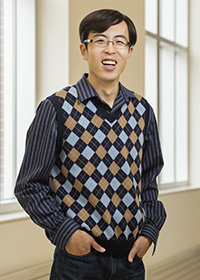
Ruopeng An
Assistant Professor, Kinesiology and Community Health
I am interested in quantitative evaluations of policies to promote healthy behaviors and reduce the burden of chronic illnesses. My recent research focuses on the role of financial incentives in diet quality, and the relationship between neighborhood environment and obesity.
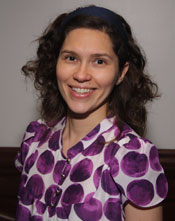
Flavia Andrade
Assistant Professor, Kinesiology and Community Health
Flavia Andrade's research focuses on the demography of health and aging in Latin American and Caribbean countries and among Latinos in the U.S.
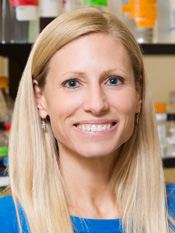
Marni Boppart
Associate Professor, Kinesiology and Community Health
Marni Boppart studies the repair process that occurs in skeletal muscle at the cellular level. Through her work, she has explained the role of the α7 integrin, an adhesion molecule that recruits therapeutic stem cells to injured muscles. She is now investigating the role of stem cells in preventing sarcopenia, the natural muscle atrophy that occurs with aging. She eventually hopes her research will lead to an effective intervention to slow down the process of muscle degradation.
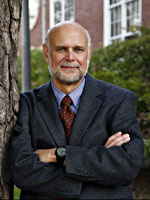
David Buchner
Professor, Kinesiology and Community Health
David Buchner has long been interested in the role of physical activity in preventing loss of function in older adults. He is currently focusing on the health benefits of exercise in women over 80, and how physical activity affects the physiological response to chronic stress in middle-aged and older Mexican-Americans. The overarching goal of his research is to keep older adults healthy and to reduce the burden of chronic illness. He is also interested in how policy and environmental interventions promote physical activity.
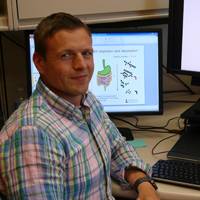
Nicholas Burd
Assistant Professor, Kinesiology and Community Health
RESEARCH: the effects of exercise and nutrition on muscle protein accretion
“What attracted me to Illinois is the potential to do good work here. I wanted
to be at a place where I’d have support. I felt people here were genuinely interested in my
work.”

Chung-Yi Chiu
Assistant Professor, Kinesiology and Community Health
My research is about health promotion, vocational rehabilitation, and psychosocial adjustment for people with chronic illness and disability, and community participation. My resarch aims to help people with chronic illness and disability live healthily and productively.
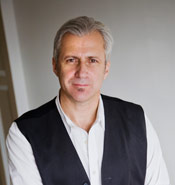
Wojtek Chodzko-Zajko
Professor and Department Head, Kinesiology and Community Health
Dr. Chodzko-Zajko's primary research interests are in the area of aging and health. For the past twenty-five years he has focused on the effect of exercise and physical activity on health and quality of life in old age. Most recently, he has focused on public policy recommendations for increasing physical activity at the national, state, and local level.
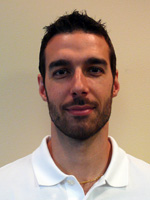
Michael DeLisio
Assistant Professor, Kinesiology and Community Health
Dr. De Lisio’s area of research interest is exercise physiology with a focus on the molecular mechanisms regulating adult stem cells in bone marrow and muscle in response to exercise.
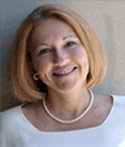
Kim C. Graber
Professor, Kinesiology and Community Health
Kim Graber's research interests focus on different dimensions of pedagogy, specifically how students learn and how teachers create effective learning environments. She is currently involved in an investigation of school compliance with the Child Nutrition and WIC Reauthorization Act; the creation of methods and materials for developing meaningful courses, leadership opportunities, and public engagement experiences for undergraduate students; and an examination of the demographics and work preferences of teacher educators in the United States.
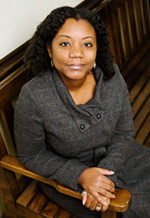
Diana Grigsby-Toussaint
Associate Professor, Kinesiology and Community Health
Diana Grigsby-Toussaint's research addresses social and environmental factors that impact childhood health and obesity. She is particularly concerned about the prevalence of Type 2 diabetes in children, and the long-term consequences for both their quality of life and the health care system.

Manuel Hernandez
Assistant Professor, Kinesiology and Community Health
Dr. Hernandez's research interests include risk factors for injury or disability during the performance of goal-directed movements, speed-accuracy tradeoffs in the control of whole body movements, and the behavioral and neural mechanisms underlying the breakdown of postural control in older adults with and without Parkinson’s disease. His dissertation research focused on the mechanisms underlying downward reaching and picking-up difficulty in older women and the effect of age on speed versus accuracy tradeoffs in the control of whole body movements involving large trunk range of motion. As a postdoctoral scholar, he assessed the effect of Parkinson's disease and dopaminergic therapy on motor adaptation to grasping tasks, examined the role of deep brain stimulation of the subthalamic nucleus on reaching in patients with Parkinson's disease, and investigated the neural and behavioral mechanisms underlying postural dysfunction in Parkinson’s disease.

Charles Hillman
Professor, Kinesiology and Community Health
Charles Hillman studies the relation of exercise to brain health and cognition across the human lifespan. Like many scholars in this area, Dr. Hillman initially focused on older adults. For the last seven years, however, Dr. Hillman has been investigating how exercise promotes cognitive health and function in children, and is the first scholar to do so from a cognitive neuroscience perspective. He studies both transient and long-lasting effects of exercise on the brain, and has observed exercise-induced increases in the allocation of attentional resources, faster cognitive processing speed, and structural changes in the brain, underlying better performance on cognitive tasks. Dr. Hillman hopes his work will lead to interventions that positively impact school performance while reducing rates of inactivity and obesity among children. Read more about Dr. Hillman's work.
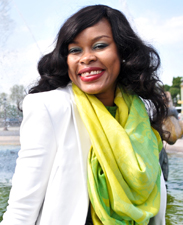
Juliet Iwelunmor
Assistant Professor, Kinesiology and Community Health
My research involves exploring the “behavioral, social, cultural, and policy factors that influence health of individuals, families, and communities across the lifespan.” I am also interested in exploring the burden of non-communicable diseases on overstretched health systems in developing countries faced with the challenges of chronic communicable diseases. Feel free to contact me at jiwez@illinois.edu.

Yih-Kuen Jan
Associate Professor, Kinesiology and Community Health
Yih-Kuen Jan's research focuses on the development of assistive technologies and clinical guidelines for improving the quality of life in people with disabilities. Dr. Jan's research has been supported by the National Institutes of Health (NIH), National Institute on Disability and Rehabilitation Research (NIDRR) and Paralyzed Veterans of America Research Foundations. He is currently working on the development of a dynamic cushion for preventing pressure ulcers and a wheelchair joystick control program for improving the wheelchair maneuverability for wheelchair users. Dr. Jan also investigates the effect of physical activity on cardiovascular function in people with impaired mobility, including people with spinal cord injury and lower limb amputation.
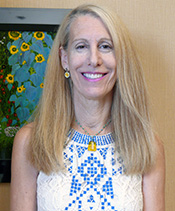
Hillary Klonoff-Cohen
Professor, Director of Master of Public Health Program, Associate Department Head, Kinesiology and Community Health
I currently serve as the Director of the MPH and PhD programs in Community Health. My research interests center around two prominent themes, women and infants’ health and reproductive cancer epidemiology. I conduct research in Sudden Infant Death Syndrome, childhood asthma, premenopausal breast cancer, childhood cancer, assisted reproductive technologies, fertility preservation, and cancer disparities.
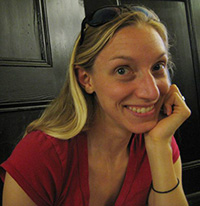
Melissa Littlefield
Associate Professor, Kinesiology and Community Health
With a joint appointment in English and Kinesiology, Melissa Littlefield works to bridge gaps between the sciences and humanities. Her current research focuses on the history of and current trends in the neurosciences, particularly lie detection. Her book, The Lying Brain: Lie Detection in Science and Science Fiction (forthcoming from University of Michigan Press 2011) examines the evolution of lie detection from the early 20th century to the use of fMRI, or functional magnetic resonance imaging. She is also currently co-editing a book on the interactions and intersections among the neurosciences, the humanities, and the social sciences. Finally, she is working on a third book about metadisciplinarity and the forensic sciences, which examines the way that metadisciplines, such as the forensic sciences and kinesiology, are constructed.
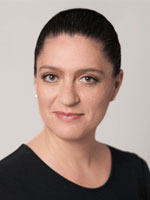
Citlali López-Ortiz
Assistant Professor, Kinesiology and Community Health
Her area of general research interest is how the brain learns and controls movement using dance movement language. She plans to develop dance applications and interventions for physical rehabilitation and movement training in health and disease. She has conducted research on dance and motor learning for children with cerebral palsy; quantitatively characterized selective motor control, spasticity, and dystonia in cerebral palsy; and investigated the effectiveness of a classical ballet dance class for movement rehabilitation in individuals with Parkinson’s Disease.
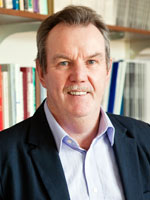
Edward McAuley
Associate Department Head/Professor, Kinesiology and Community Health
Dr. McAuley's area of professional interest is exercise and health psychology, with particular emphasis on physical activity promotion across the lifespan and those factors that contribute to independent living and quality of life. His research focuses on physical activity and well-being across the lifespan and the relationships among physical activity, social cognitive factors, function, disability, and quality of life.
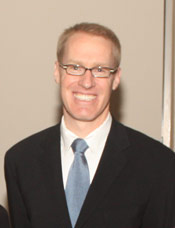
Rob Motl
Associate Professor, Kinesiology and Community Health
Rob Motl investigates the physical activity behavior in persons with multiple sclerosis (MS). The goals of his research are to quantify physical activity behavior in people with MS, to understand the major variables that affect physical activity behaviors, to elucidate the consequences of physical activity, and to promote physical activity among people with MS. He and Department of Kinesiology and Community Health colleague Edward McAuley are currently piloting the Internet Physical Activity Intervention in MS, or In-PhAIMS Project, a 12-week online program that encourages people with MS to become more active, and helps them develop the skills they need to maintain and increase levels of physical activity. Dr. Motl hopes one day to open an exercise clinic on campus where people with MS could work with him and graduate and undergraduate students to design individualized programs to help them cope with the disease.
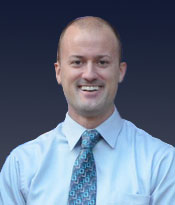
Sean Mullen
Assistant Professor, Kinesiology and Community Health
Dr. Mullen's research focuses on using technology to promote physical activity participation among adults. Specifically, he is interested in web-based and mobile applications designed to enhance exercise self-regulation. His secondary interests include the interrelationships among exercise, self-perceptions, cognition, and brain plasticity, and measurement development.
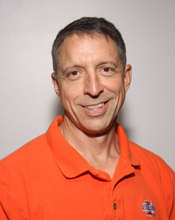
Steven Petruzzello
Associate Professor, Associate Department Head, Kinesiology and Community Health
In his research, Steven Petruzzello examines the role of exercise, encapsulated along a continuum from low-to-moderate (walking, cycling, running, for example) to vigorous (including competitive swimming and running) and physical activity performed in extreme environments, such as firefighting, on such psychophysiological outcomes as brain activation, basic affect, fatigue and energy, anxiety, and depression.
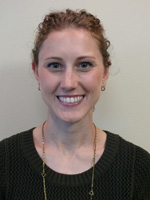
Lara Pilutti
Assistant Professor, Kinesiology and Community Health
Dr. Pilutti’s research interests are in clinical exercise physiology and exercise rehabilitation. Her research focuses on the role of exercise in the management and treatment of disability arising from neurological disorders, particularly multiple sclerosis. Her research has focused specifically on the application of adapted exercise rehabilitation strategies for individuals with advanced mobility impairment. Dr. Pilutti is interested in the role of exercise in the management of comorbid health conditions that commonly affect those with neurological disorders and mobility impairment.

Ian Rice
Assistant Professor, Kinesiology and Community Health
Ian Rice's research focuses on rehabilitation science, with an emphasis on interventional studies. He is particularly interested in combining motor learning theory with the ergonomic principles of wheelchair configuration to maximize the quality of the match between people with disabilities and mobility technology. Ultimately, he'd like to improve the quality of life of people with disabilities and minimize secondary health conditions and social and psychological barriers that negatively impact their lives.
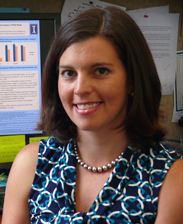
Laura Rice
Assistant Professor, Kinesiology and Community Health
Professor Rice’s research interest is in the area of disability and health. She is specifically interested in the prevention of secondary impairments associated with disability to maximize quality of life and community participation among wheelchair users. A related interest is in examining education techniques to enhance functional mobility, prevent development of secondary impairments and effectively utalize assistive technology to promote health and well-being among individuals with disabilities.
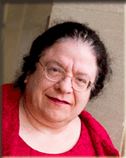
Karin Rosenblatt
Associate Professor, Kinesiology and Community Health
Dr. Rosenblatt's research focuses on cancer epidemiology with an emphasis on the etiology of gynecologic neoplasms. Exposures investigated include contraceptives, mineral fibers and talc, reproductive characteristics, family history of cancer, marijuana use, number of sexual partners, human papilomaviruses 16 and 18, ionizing radiation, and electromagnetic field exposures. Present investigations include the relationship between contraceptives and cancer and the role of denser mammographic patterns in the etiology of female breast cancer.

Andiara Schwingel
Assistant Professor, Kinesiology and Community Health
Andiara Schwingel's research interests focus on how cultural, national, and international factors impact the process of growing older around the world. For the last 10 years, her work has examined the effects of lifestyle on health and chronic disease. Working with experts in the area of aging convinced her to pursue investigations into helping people increase not only the length of their lives, but also the quality and independence of their older years. She co-directs the Aging and Diversity Lab, where she is investigating how to promote health in older Latino populations in rural and urban Illinois.
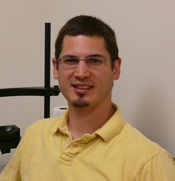
Jacob Sosnoff
Associate Professor, Kinesiology and Community Health
Jacob Sosnoff's research focuses on the influences of aging, chronic illness, and disability on motor control. He has examined the relationship between oral muscles of the face and manual dexterity, and is currently investigating factors that contribute to shoulder pain in wheelchair users.
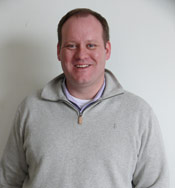
David Strauser
Professor, Kinesiology and Community Health
David Strauser investigates aspects of personality development and how it relates to employment, community involvement, and psychological well-being among people with cognitive and psychiatric disabilities. His recent research examines these outcomes among young adult brain tumor survivors. In his multiphase study of 18- to 30-year-old adults, Dr. Strauser is investigating how the age of diagnosis relates to the development of effective work behaviors, and how it impacts the way brain tumor survivors view their ability to succeed in the workplace.
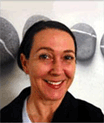
Synthia Sydnor
Associate Professor, Kinesiology and Community Health
Synthia Sydnor brings a different perspective to her work in kinesiology and community health, one that is rooted in the humanities. As a cultural theorist, she is interested in philosophical questions concerning humankind and the meaning of life in a broad historical sense. She is currently working on a treatise about the nature of sport and believes that her unique understanding of ritual and play will help create a holistic understanding of the use and function of sport.
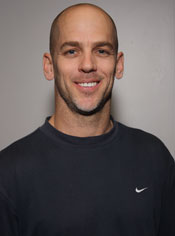
Kenneth Wilund
Associate Professor, Kinesiology and Community Health
People with Chronic Kidney Disease (CKD) have among the highest rates of death from cardiovascular disease due to vascular calcification. Kenneth Wilund is investigating the effects of exercise and diet on comorbidities in people with CKD. He hopes to identify a multi-faceted therapeutic intervention that inhibits the progression of kidney disease and its related cardiovascular complications.

Amy Woods
Professor and Associate Department Head, Kinesiology and Community Health
Amy Woods pursues two lines of research. One area focuses on the career development of physical education teachers. She is interested in the factors that lead some physical education teachers to maintain their enthusiasm for the field and to continue to grow throughout their careers. She is also studying some who are pursuing National Board certification. Her second area of research focuses on school-based physical activity. Through her studies, Dr. Woods hopes to gain more insight into activity patterns during recess, and to promote more activity.
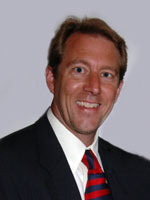
Jeff Woods
Professor, Kinesiology and Community Health
For more than 20 years, Jeff Woods has been studying how exercise affects the immune system. He has amassed a number of impressive results, and made outstanding contributions to the literature on physical activity, inflammation, and the immune response. Dr. Woods was selected to be the 2009 King James McCristal Distinguished Scholar in recognition of his many significant achievements. His McCristal Lecture focused on one of his recent studies on the effects of cardiovascular exercise on the effectiveness of flu vaccines in older adults.
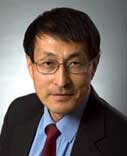
Weimo Zhu
Professor, Kinesiology and Community Health
The focus of Dr. Zhu's research is the Kinesmetrics Laboratory. Kinesmetrics is a discipline to develop and apply measurement theory, statistics and mathematical analysis to the field of Kinesiology. The research questions and projects of the lab range from basic to applied and are often multi-disciplinary in nature. As such, the Kinesmetrics Laboratory will frequently collaborate with other laboratories in the Department of Kinesiology and Community Health as well as other departments across the University of Illinois campus.
